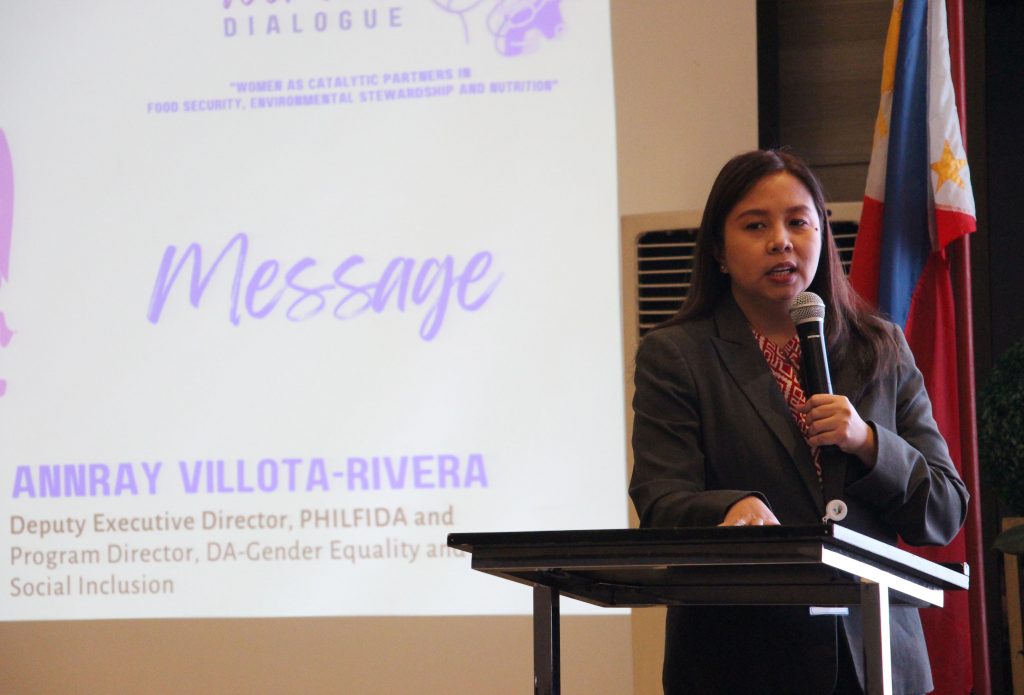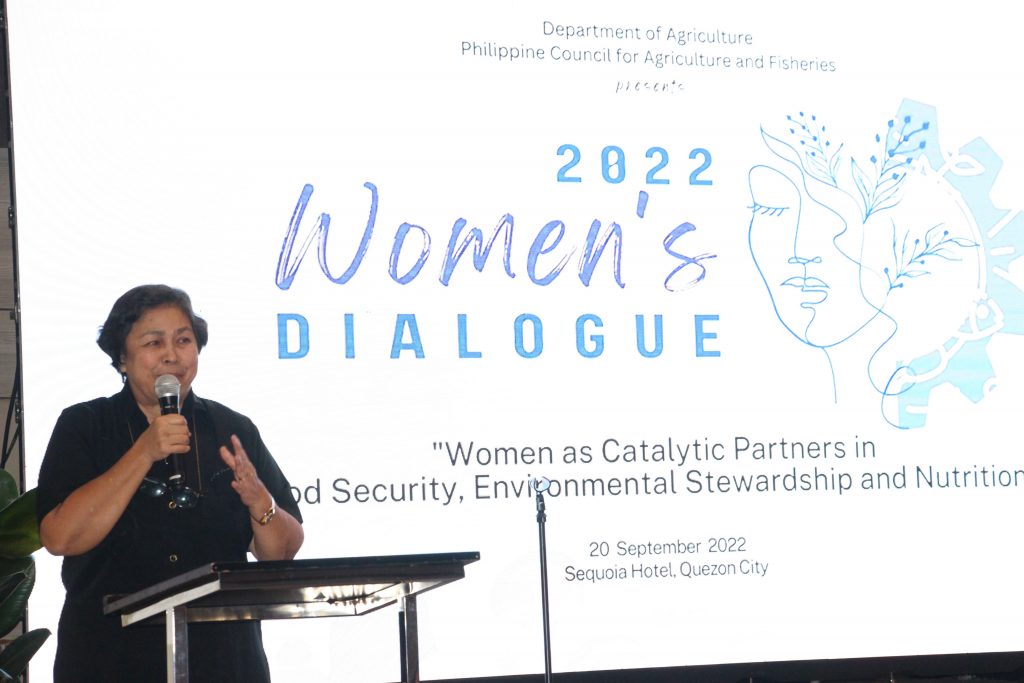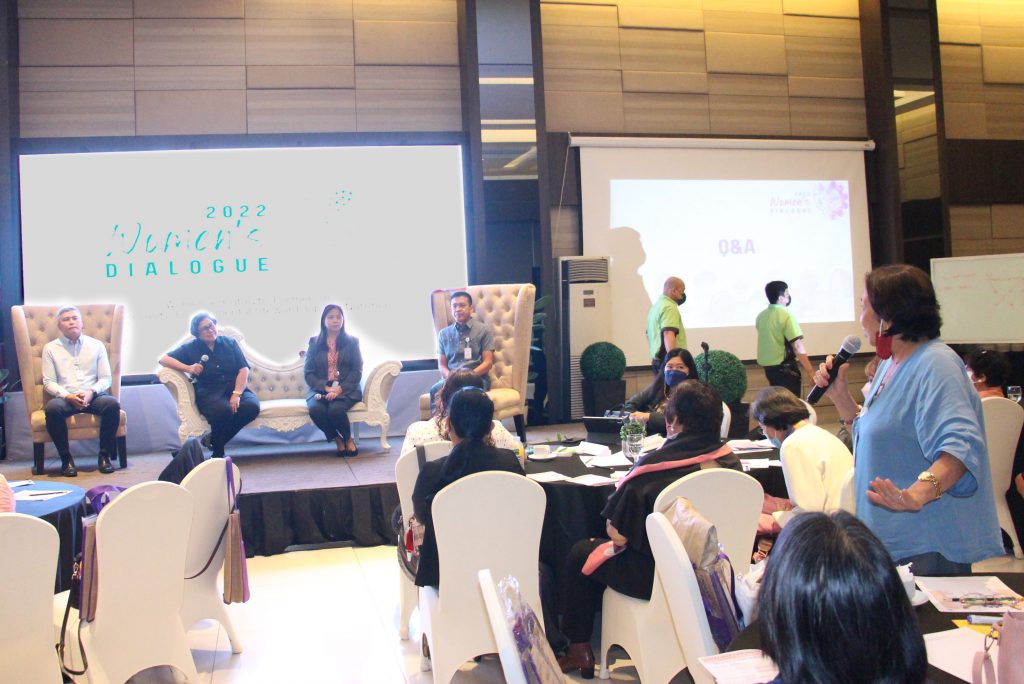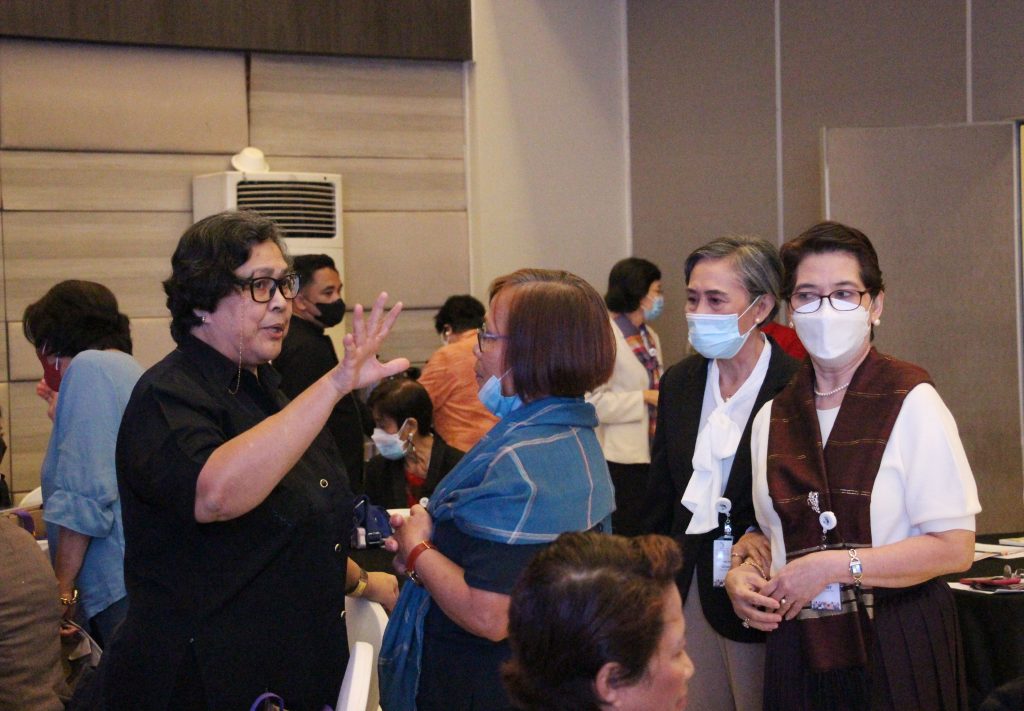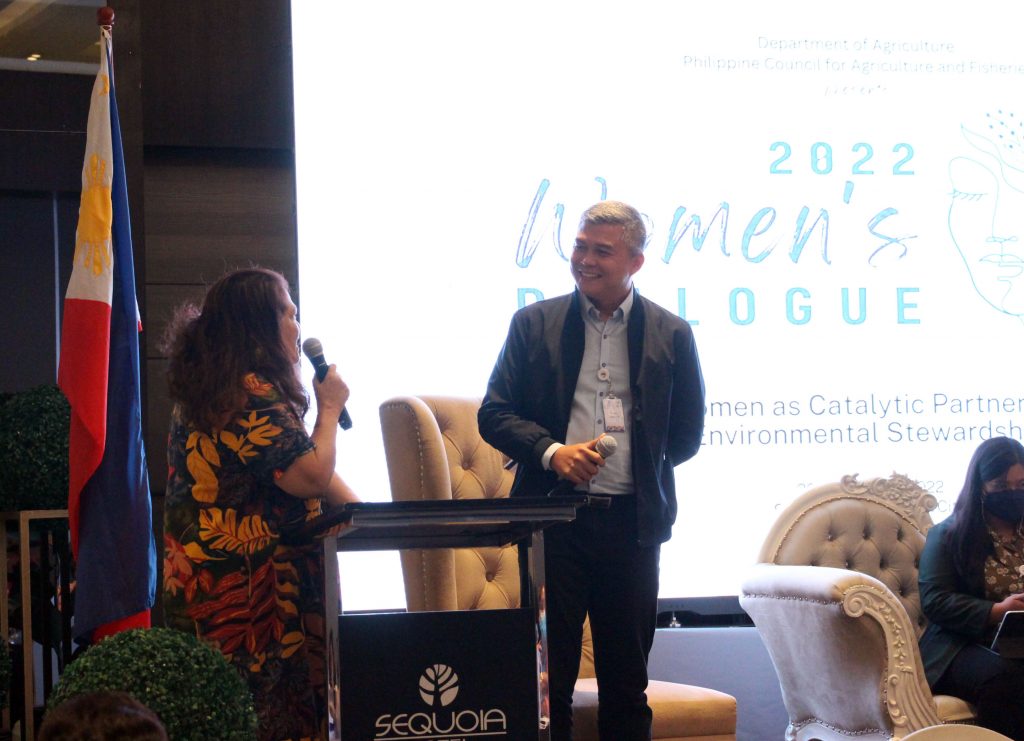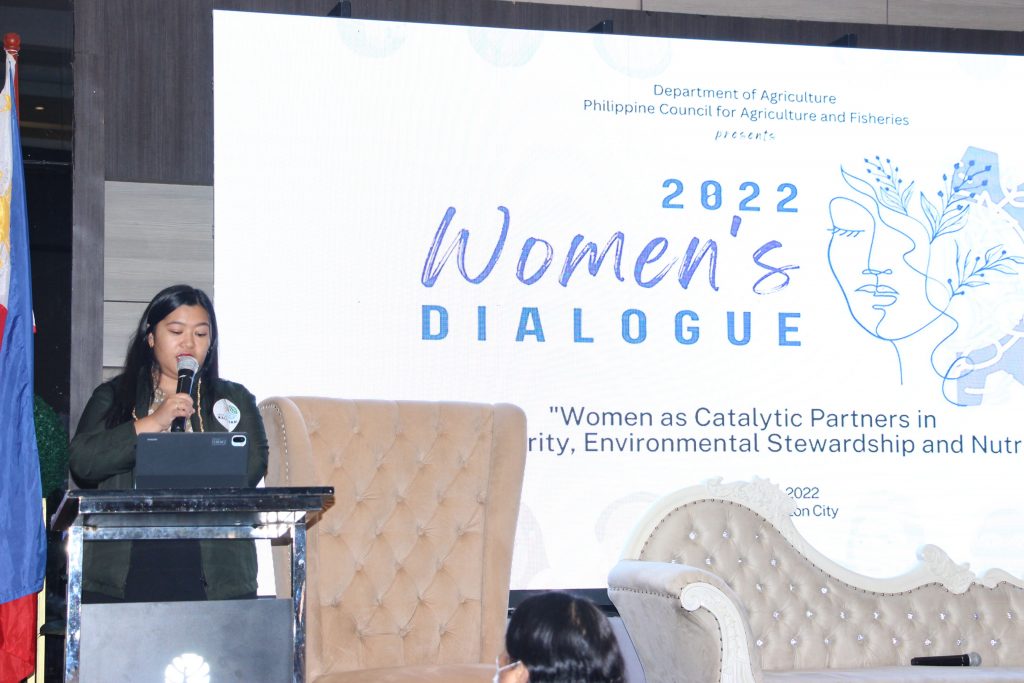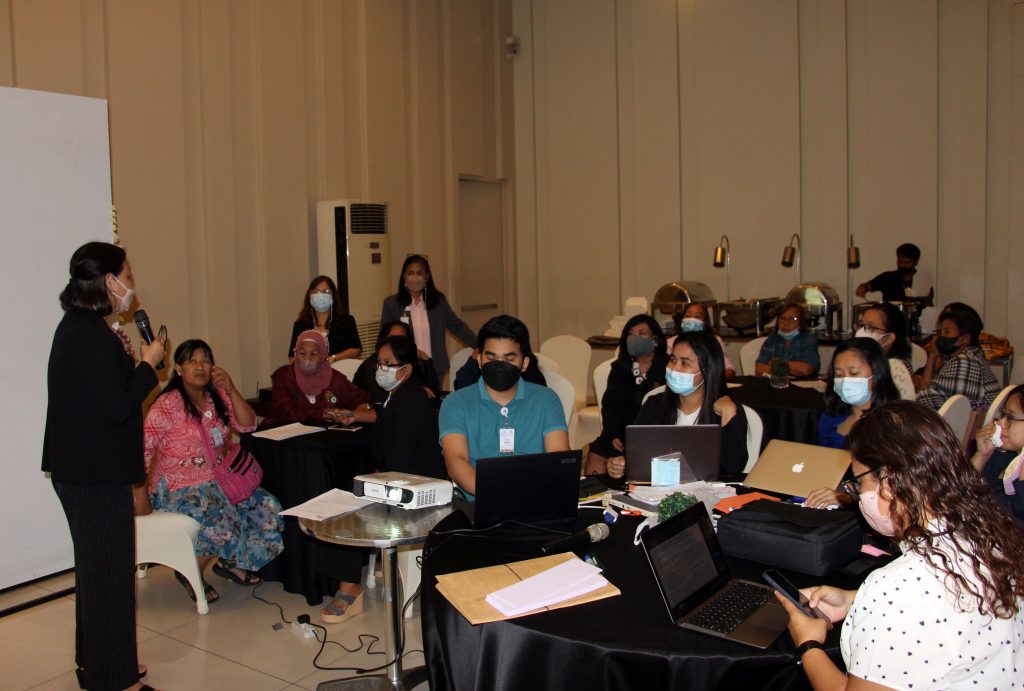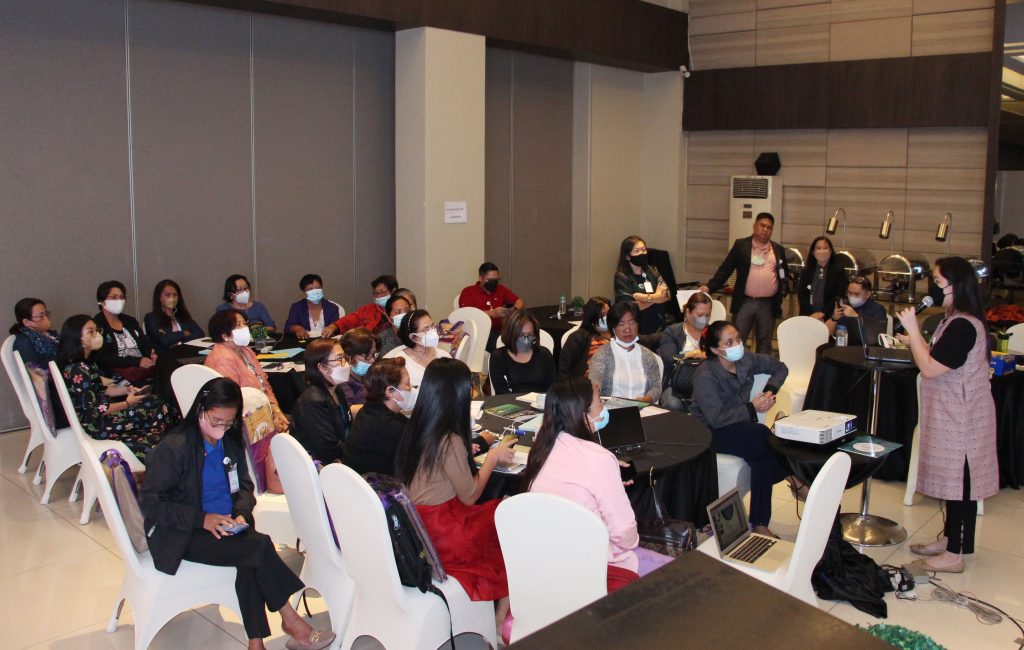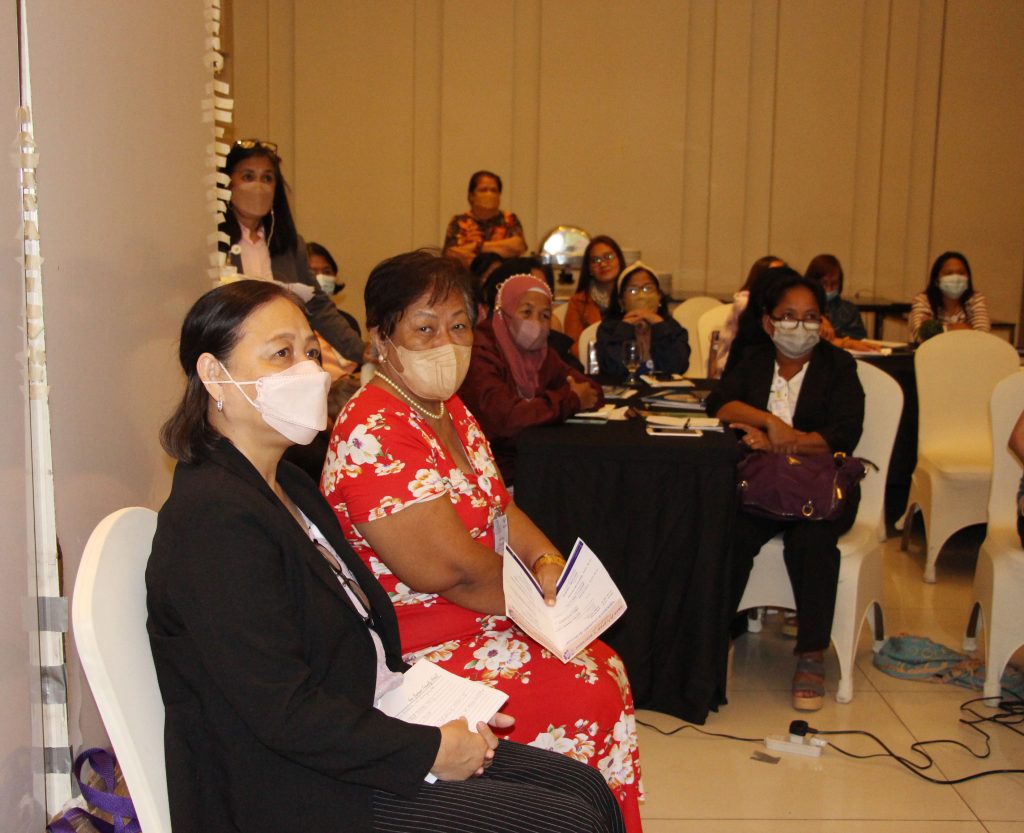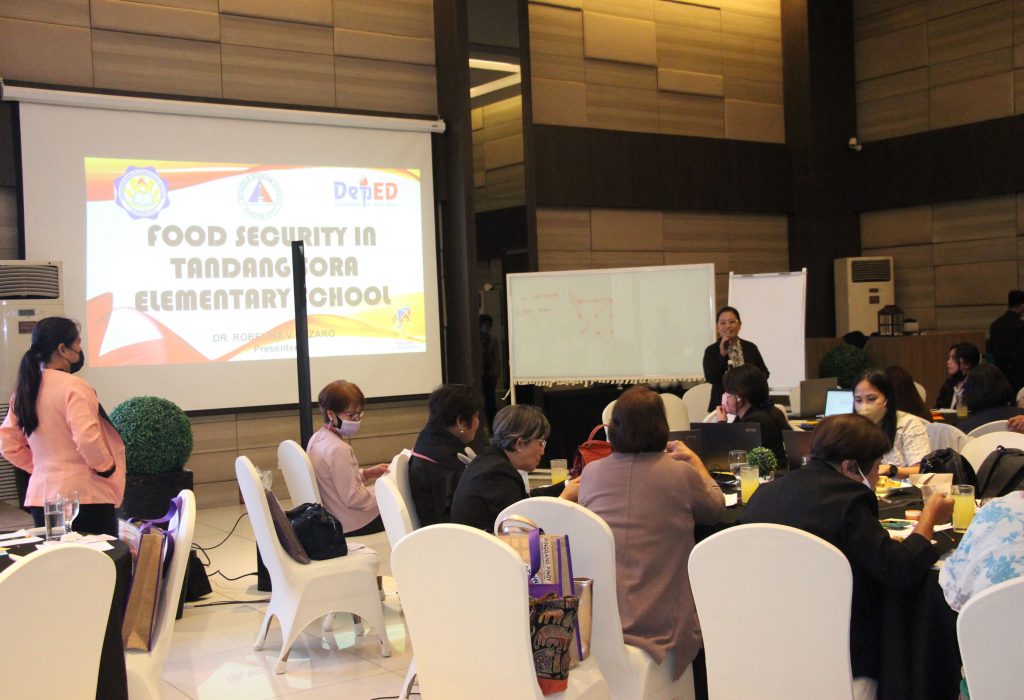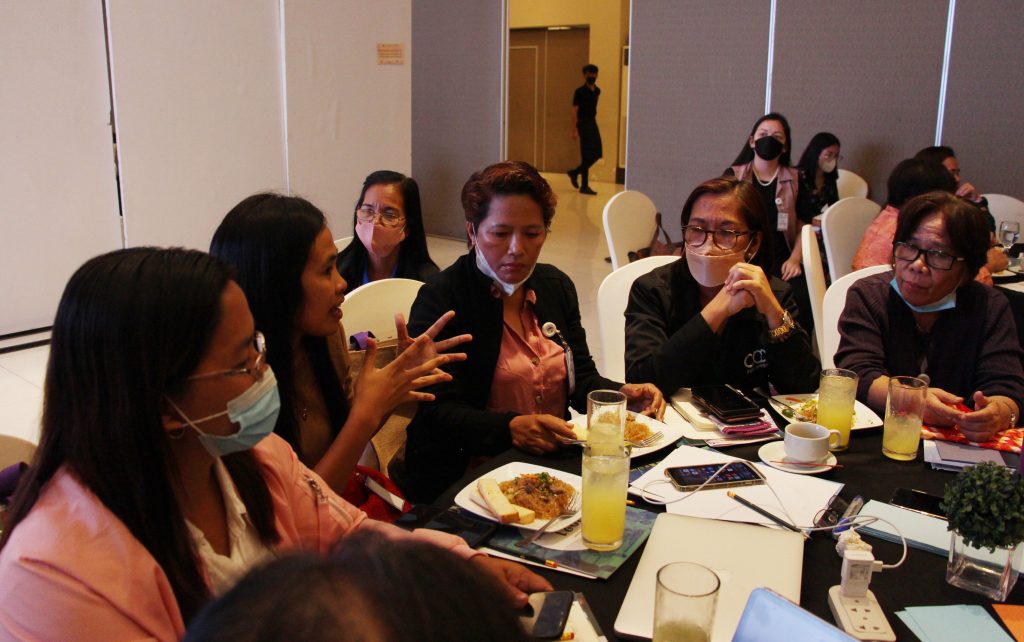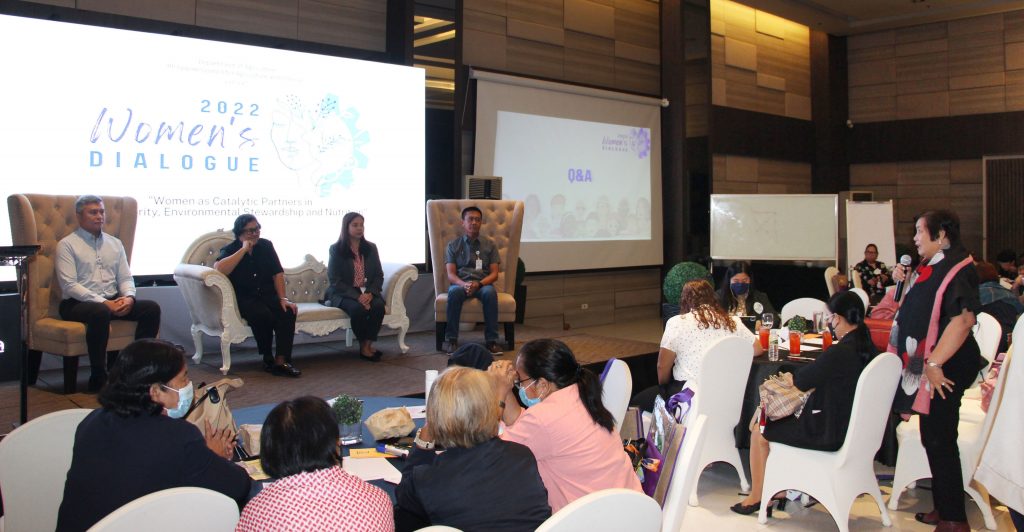
The Philippine Council for Agriculture and Fisheries (PCAF) opened another platform to highlight the agriculture and fishery women leaders as the industry’s “catalytic partners” and to share their learning and opportunities during the height of the Covid-19 pandemic.
The 2022 Women’s Dialogue conducted on September 20, 2022 in Quezon City, housed more than 60 participants from all over the country to harvest the learnings from the experiences of women, women’s group, and youth groups, and identify spaces and events that would further leverage the competencies of the participants to help our country recover from the impacts of COVID19 as well as strengthen the resiliencies of our urban and peri-urban communities.
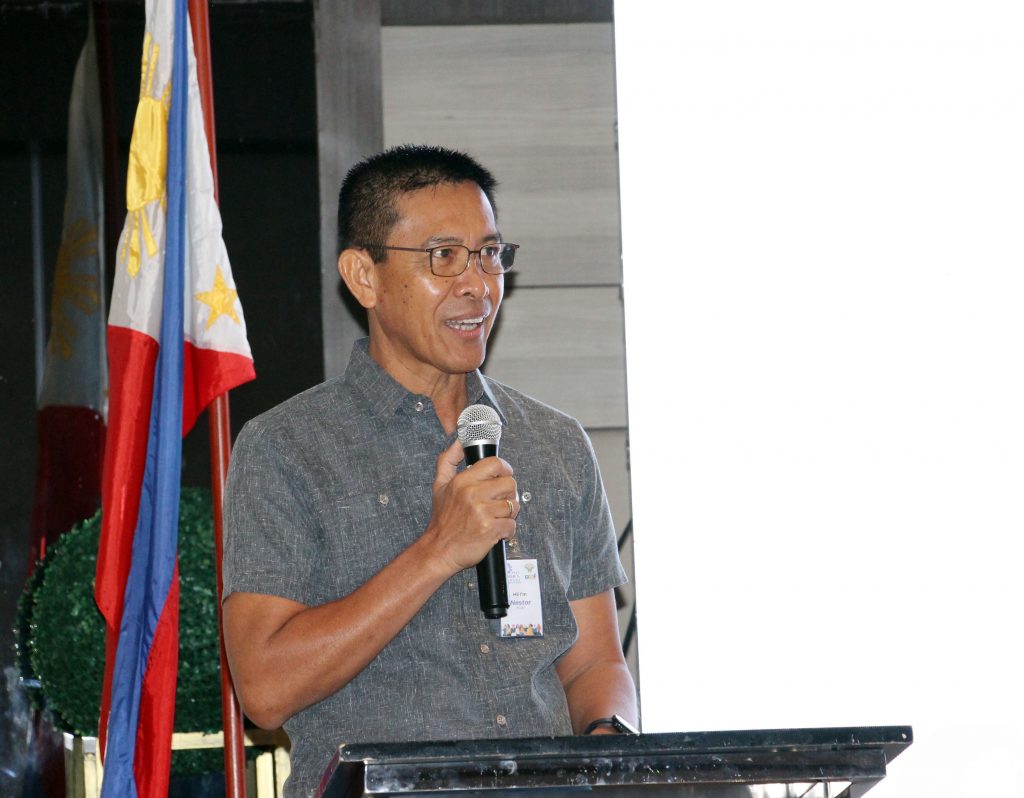
“Women, as leaders, are indeed prime movers of food security. This event is a celebration of women’s efforts in feeding our communities, with their active participation in community gardens, and garden-to-table community pantry initiatives,” said PCAF Executive Director Nestor D. Domenden.
He also added that PCAF recognizes women’s role as eco-warriors with their conscious efforts to take care of the environment. The Dialogue also celebrates women’s efforts in championing nutrition in their homes and their communities.
Focused on the theme “Women as catalytic partners in food security, environmental stewardship and nutrition”, the PCAF Gender and Development Focal Point System invited resource persons to present and lead the panel discussion on the identified topics.
For food security, Bureau of Plant Industry OIC Director and National Urban and Peri-Urban Agriculture Program (NUPAP) and High Value Crops Program Director Gerald Glenn Panganiban discussed how the new program helped women and other groups.
The NUPAP was created through DA Administrative Order No. 3, S.2022, to promote agricultural practice in limited space in the metropolis as an intervention in achieving food security, and provide alternative sources of livelihood.
He introduced the programs and projects of the NUPAP that provided assistance to various groups and created a movement that would encourage groups to support sustainable crop production. Some of the programs include establishing community gardens like indoor vertical farms and rooftop gardens that would promote safe, available and affordable food to families and the community.
For environmental stewardship and responsible management, Department of Environment and Natural Resources Development Management Officer Joan Frances Laborte talked about the Philippine climate extremes, the impacts of climate change on women, and women’s role as environment stewards.
She shared that there should be a cultural and behavioral shift in the industry. There is a need for both significant gender-responsive government policies and important personal behavior changes. While Covid-19 in the short-term is radically altering everyone’s lifestyle, there is a need for a long term cultural and behavioral shift for climate action.
For good nutrition, the Department of Health Assistant Secretary and National Nutrition Council Executive Director, Dr. Azucena Dayanghirang shared the food and nutrition programs of the Council.
She urged the Department of Agriculture (DA) and other Departments to be nutrition sensitive, noting the factors affecting nutrition status in the first 1,000 days of life. She shared that poor maternal nutrition, inappropriate child feeding and care, and exposure to repeated infections can affect the needed nutrition of a person, especially at a young age. Government offices, like the DA, can help in addressing this gap by incorporating nutrition-related indicators in its targets.
Aside from the panel discussions, there were also thematic focused group breakout sessions conducted simultaneously. Resource speakers from the government, academe and civil society organizations shared their programs and projects and showcased good practice models, scaleable innovations and promising initiatives related to achieving food security, promoting good nutrition and environmental stewardship.
University of the Philippines-Los Banos-College of Agriculture and Food Science University Researcher, Dr. Blesilda Calub and Tandang Sora Elementary School Principal, Dr. Robelina Lazaro talked about programs relative to “women as prime movers of food security.”
Among the identified policy gaps that need to be addressed are ensuring good or high quality of planting materials during the transport or delivery to the beneficiaries and the insufficient local government unit (LGU) support to farmers in marketing their products.
Galing Pook Foundation Executive Director Georgina Ann Hernandez-Yang and School for Experimental and Entrepreneurial Development Bulacan Campus Director and Chief Agriculturist Norhaya Demacaling shared their experiences on the topic of “women as eco warriors and environmental stewards.”
After the discussion, the participants were able to identify initiatives that they can spearhead in their communities. These include massive information dissemination campaigns about climate change and environmental concerns nationwide, strengthening advocacy for solid waste management, and promotion of organic farming.
Adventist Development and Relief Agency Philippines Project Manager Lovely Joy Alvar and Gender and Development Independent Consultant Lucita Lazo discussed their initiatives relative to “women as nutrition torchbearers and champions.”
Priority actions and recommendations for good nutrition were generated after the session.These include the inclusion of vegetable gardening in the Barangay Comprehensive Development Plan; the Department of Social Welfare and Development to provide nutritious food in their family food packs instead of canned goods to support the farmers and fisherfolk; and the barangay LGUs to initiate nutrition interventions in their respective barangay through the establishment of a vegetable garden in every household.
DA Undersecretary for Policy, Planning, and Regulations, Dr. Merdicita Sombilla graced the event and answered questions from the participants.
Aside from identifying policy gaps and interventions, the participants signed the Commitment Wall with their advocacies and aspirations written on it. They were also able to collaborate, cooperate and complement with their fellow participants.
The Dialogue’s moderator, International Gender and Development Advisor Carmen Auste noted that women leaders are individually called change makers. However, the activity proved that there is power in numbers and everyone should get others involved to make a difference and build their confidence to speak because everyone has a story to tell.
She also encouraged everyone to keep on talking and start doing – start small, test and don’t be afraid to make mistakes. | JC


